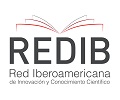Poetics of the pregnancy and the mother tongue for Latin America: Ana Cristina Cesar e Tamara Kamenszain
DOI:
https://doi.org/10.14409/eltaco.2022.16.e0075Keywords:
Ana Cristina Cesar, Tamara Kamenszain, Latin American poetry, pregnancy, mother tongueAbstract
The interpretation of the literary tradition and the formation of a canon are usually based on the definition of an identity, an authorial brand, a particular style and their heritage dynamics. In the case of Latin American literature and its tradition, this definition of identity was shown to be insufficient, or inoperative, already in the formulations of its best-known thinkers like Octavio Paz, Ángel Rama or Antonio Cándido. This text intends to show as one of the most interesting ways of opposing identity, authorial and hereditary logic, the strong presence of contemporary poetic texts that work around the problems of the mother tongue —instead of a national language, a babbling, an in-fance language; of the maternal or pregnant body— which contains otherness and openness; and an economy of care and of the house, domestic life and coexistence; and not for profit. To do this, I propose the reading of some poetic texts that allow us to observe this other poetic economy, such as those by Ana Cristina César, Tamara Kamenszain and Roberta Iannamico.
References
Agamben, G. (2011). O reino e a glória. Homo Sacer, II, 2. Boitempo. Traducción de Assmann, S.
Antelo, R. (2008). La acefalidad latinoamericana. En Crítica Acéfala (pp. 33‒50). Editorial Grumo.
Barthes, R. (1993). El placer del texto. Siglo XXI. Traducción de Rosa, N.
Candido, A. (1993). Uma visão latino-americana. En Chiappini, L.; Aguiar, F. (Orgs.), Literatura e história na América Latina (pp. 263‒270). EDUSP.
Cesar, A.C. ([1986]2013). Poética. 1a edição. Companhia das Letras.
Cesar, A.C. (2008). Antigos e soltos. Poemas e prosas da pasta rosa. Bosi, V. (Org.). Instituto Moreira Salles.
di Leone, L. (2016). Poesia de roda: notas a partir do convívio poético entre Manuel Bandeira e Alfonso Reyes. Sociopoética, 16, 24−42.
Foffani, E. (2012). Tamara Kamenszain: la poesía como novela luminosa. En Kamenszain, T., La novela de la poesía. Poesía reunida (pp. 3‒47). Adriana Hidalgo.
Garramuño, F. (2009). La experiencia opaca. Fondo de Cultura Económica.
Hernando Marsal, M. (2010). A tradução cultural na literatura latino-americana. Fragmentos, (39), 73−83.
Iannamico, R. (2000). Mamushkas. VOX.
Kamenszain, T. (2000). Bordado y costura del texto. Historias de amor (y otros ensayos sobre poesía) (pp. 207‒211). Paidós.
Kamenszain, T. (2007). La boca del testimonio. Lo que dice la poesía. Norma.
Kamenszain, T. (2012). La novela de la poesía. Poesía reunida. Adriana Hidalgo.
Klein, M. ([1957]2009). Envidia y gratitud. Obras completas 3. Paidós.
Kristeva, J. (2001). O genio feminino II. Melanie Klein. Paidós.
Miles, M. (2008). A Complex Delight: The Secularization of the Breast, 1350–1750. University of California Press.
Nancy, J.-L. (2003). Corpus. Arena Libros.
Nancy, J.-L. (2008). Las musas. Amorrortu. Traducción de Pons, H.
Nancy, J.-L. (2014). Rühren, Berühren, Aufruhr. En Arquivida. Do senciente e do sentido (pp. 15‒27). Iluminuras. Traducción de Vieira, M.
Paz, O. ([1968]1994) ¿La poesía latinoamericana? Obras completas. Fundación y disidencia (pp. 69‒80). Fondo de Cultura Económica.
Rama, Á. (1974). Um processo autonômico: das literaturas nacionais a literatura latino-americana. Argumento, (3), 36−49.
Rodríguez, F. (2010). Un desierto para la nación. Eterna Cadencia.
Sloterdijk, P. (2009). Esferas I. Burbujas. Siruela.
Springgay, S. (2012). Tasting the M/other as Sensational Pedagogy. En Springgay, S. y Freedman, D. (Eds.), Mothering a Bodied Curriculum: Emplacement, Desire, Affect (pp. 254−268). University of Toronto Press.
Van Ginneken, J. (Jacobus Joannes Antonius) (1903). Principes de linguistique psychologique. Essai de synthese. Marcel Riviére Editeur.





















